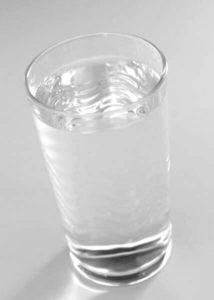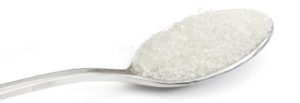
For one 8 oz glass of water, a softener adds about 2 milligrams of sodium for every grain of hardness. Notice I said sodium (Na) and NOT salt. Salt is actually sodium chloride (NaCl). A water softener adds sodium to your softened water but NOT chloride. The chloride washes away when your softener goes through a cleaning cycle.
Why does a Water Softener add sodium to my water?
- A softener makes a deal with you: It agrees to REMOVE hardness, iron and manganese from your water in EXCHANGE for adding some sodium to your water.
- Unless you have a TON of iron or manganese in your water, (a total of 17 ppm) a Water Softener exchanges such little sodium that it’s not worth computing.
- The real exchange is with the hardness of your water. And the math is simple
- Take your total grains hardness and multiply it by 2. That number represents how much salt per cup (8 oz) of water is added to your water
 EXAMPLE: Say your water is 5 grains hard. CT waters have typically low hardness between 3-5 grains.
EXAMPLE: Say your water is 5 grains hard. CT waters have typically low hardness between 3-5 grains.
So the math is 5 x 2 =10. This means your glass of water will have about 10 mg of sodium added from your softener.
Think that’s a lot of sodium? Take a look at ANY food or beverage item in your kitchen and you will be shocked. A cup of low fat milk (8 oz) has over 100 mg of sodium. A piece of bread has over 200 mg of sodium.
The general recommendation for an adult is less than 2,300 mg of sodium per day.
Don’t you think your Water Softener makes a pretty good deal with you!?
